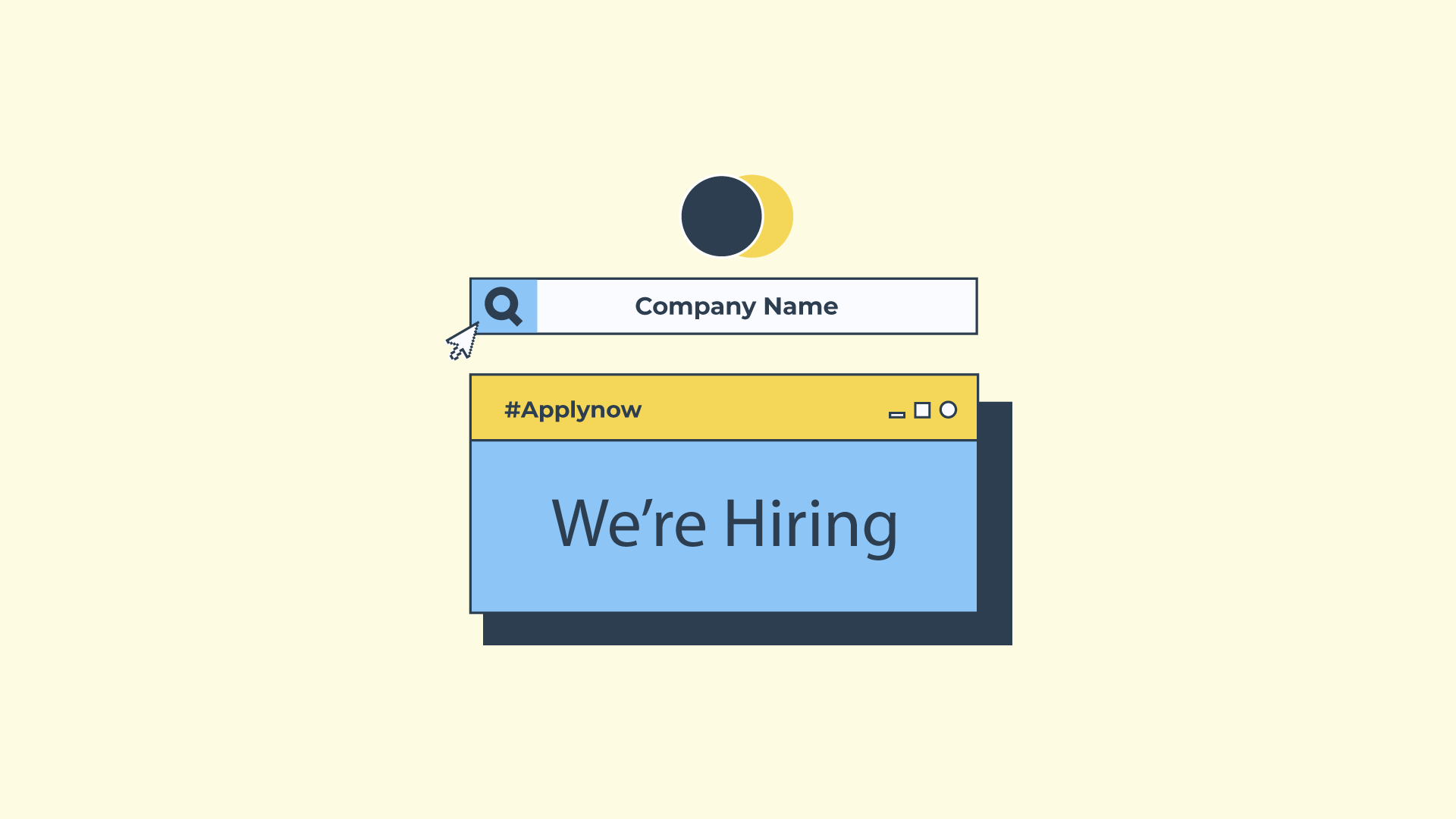What is recruitment marketing? How does it differ from other forms of marketing? What benefits does it provide? What are the key components of recruitment marketing?
Recruiters often target candidates who are currently employed, as well as those who are looking or thinking about leaving their current company. According to Talentify, 76% of hiring managers admit attracting the right job candidates is their greatest challenge.
Recruitment marketing aims to help companies overcome hiring difficulties and improve their employee retention rate.
It attracts candidates through different forms of content, including blog posts, eBooks, whitepapers, and e-books. It plays on candidates’ innate desire to learn about employers.
In this blog, we are going to tell you about what is Recruitment Marketing and why it is important. First, let us explain what recruitment marketing is.
|
Recruitment Marketing |
What is Recruitment Marketing?
Recruitment marketing is a process of attracting, sourcing, engaging, and ultimately hiring the best candidates for open positions within an organization. The recruitment marketing process can be used to fill both internal and external job openings. When done correctly, recruitment marketing can result in a higher quality of hire, faster time to fill, and lower recruiting costs.
The goal of recruitment marketing is to find the best-fit candidates for the open position and company. This can be done by HR and marketing professionals working together to create a strategy that resonates with the target audience.
The suite of skills, practices, and technologies that support it have become indispensable to employers in their competition to attract top talent.
Why is Recruitment Marketing Important?
Job seekers use the same tools as consumers to find potential employers today. By following social media, reading reviews, and searching the internet, candidates can learn about an employer and their available job opportunities.
Recruiters are increasingly using marketing tactics to engage potential candidates and convert them into job applicants. This is because what candidates learn about a company's culture and values during this phase can strongly influence their decision to apply for the job and accept an employment offer. Therefore, recruiters need to focus on creating a positive and attractive impression of the company during this phase.
This has meant that recruiters are now using tactical marketing initiatives to engage, attract, and ultimately convert high-calibre talent.
1. Analytics Make Better Recruiters
Human Resources departments are tasked with collecting data about both employees and potential candidates. This data can be extremely valuable to organizations, yet many companies have not been taking advantage of it.
According to Gartner Inc., a market research company, a little less than one-quarter of major employers are currently monitoring whether or not their hiring processes are producing quality candidates or employees. The numbers are considerably smaller for smaller businesses.
Many employers measure the cost of each hire and the time spent on hiring. This allows them to track their progress and ensure they are making the most efficient use of their resources. By understanding the cost and time associated with hiring, employers can make better decisions about their hiring processes and strategies.
You can use data and analytics to figure out what messages and sources are effective, what new hires are successful, and what ones are leaving. You can test different recruitment messages across a selection of job boards and start targeting job seekers who are most likely to be successful. Currently, most HR departments only track completed applications.
If you have ads that are not performing well on various platforms, you can immediately tweak, kill, or revamp your approach.
2. It Helps You Avoid Culture Clash
Employee turnover is typically costly -- it can be crippling to new companies, or ones that are just getting started, from a financial standpoint. Replacing one employee could cost you up to about a year-and-a-half times his or her annual salary. Recruitment marketing is a way to ensure that you are getting the right person in your team on day one.
Ordinary job listings tell all, but none, of what a candidate can expect when applying for your position. It gives details of titles, salaries, and benefits, and usually gives a vague sense of what day-to-day life is like.
Most job postings provide an overview of what a candidate can expect in terms of job title, salary, and benefits, but give little insight into what day-to-day life working for your company would be like.
However, the most effective recruiting marketing does more than just that. It humanizes candidates, provides insight into the workplace and culture, and gives candidates a sense of the social scene, pace, and overall atmosphere they can expect.
When looking to fill a position, it is important to consider where to best reach out to qualified candidates. Posting a detailed job listing on relevant sites helps with this, but it is also beneficial to supplement this with a marketing campaign specifically geared toward recruiting. This allows you to reach a wider pool of potential candidates and target those with the right temperament and aptitude for the position.
You are intentionally designing your sales pipeline. It is structured to cast a wide net through a variety of channels, then intentionally steers qualified leads to make a thoughtful decision.
Recruiting marketing provides a more comfortable and safe experience for both parties involved, as it allows for open communication and understanding before any phone calls or interviews take place. This is in contrast to more traditional forms of advertising, which can often be less effective in establishing initial contact and building rapport.
3. It's Inherently More Organic
Compare recruiting marketing to other, more traditional forms of advertising. There is something inherently artificial, for instance, about using social media channels to promote a product or service.
It seems like it goes against the purpose for which Twitter, Facebook, and YouTube were designed in the first place. Unless it is an especially carefully-crafted ad, getting these messages to go viral can be a difficult task.
On the flip side, marketing that emphasizes the culture of a company and recruiting could seem more authentic and organic, and allow you to be less formal and more natural.
4. You Can Strategically Attract Higher-quality Candidates
Using the Inbound marketing framework, marketers create buyer personas to drive content creation. Similarly, recruiters can build candidate personas to match the company's culture and personnel plans.
To find the best candidates for your company, it is important to understand who your ideal candidate is. This is where creating candidate personas come in.
A candidate persona is a semi-fictional representation of your ideal candidate. When creating a candidate persona, you will want to consider factors such as:
- What is their background?
- What are their goals?
- What motivates them?
- What are their pain points?
By understanding your ideal candidate, you can better tailor your recruiting efforts to attract the best candidates. With your recruit marketing efforts strategically directed at the perfect candidate, you can target individuals that match your candidate's personas and nurture this best talent with care.
Not only will this save you time and energy, but it will also increase your chances of making a great hire. So if you're not already using a candidate persona, you need to start doing that today.
5. Strategic Alignment
Recruitment marketing is all about playing the long game. There is a large strategic component to it: You are looking for candidates who can have 10x the impact in your organization, not just those who are available right away.
This means that you have to put in the time and effort to find the right candidates, and then market your organization to them in a way that will make them want to work for you. But it is worth it because you will end up with a team that is much more effective and successful.
These candidates may eventually end up being hired, but just as likely, they may not. Either way, they need to be of high enough quality that your company would benefit from building relationships with them no matter what.
6. Talent Acquisition Acceleration
Talent acquisition teams are typically evaluated on several key metrics, including the most common recruiting KPI, Time To Hire. Therefore, being able to fill roles quickly is essential.
As your recruitment marketing programs begin to take effect and you start attracting candidates who are a good match for your company, you should expect to see an improvement in your hiring processes.
For example, When you have a talent pipeline in place (and processes for adding new talent to it), your teams never have to start a new search from scratch. There will always be a pool of interested candidates they can contact about new opportunities, courtesy of your recruitment marketing efforts.
7. Better Candidate Experience
The relationship between your business and the job candidate starts long before he or she applies. It starts the first time they interact with you. In that initial phase, a candidate's experience is significant. This is when people are evaluating your company, and you want to make sure you're putting your best foot forward.
Recruitment marketing provides you with the ability to customize the content and communications that individuals receive during this phase of the process. Each touchpoint can be specifically designed to target the persona of the candidate, the level of engagement, and the relationship they have with your organization.
For companies concerned with their candidate's experiences, recruiting marketing is a smart move.
8. Stronger Employer Branding
When job seekers are looking for employment, they aren't just considering individual companies, they're also evaluating the brands of those companies. They want to find organizations whose values and mission statements align with their own beliefs. By creating a strong, relatable brand, companies can attract top talent that is a good fit for their culture.
Your brand's presentation and sales strategy are key to success. Ensure your career website contains the right content, run effective nurturing campaigns, and send messages that accurately reflect your EVP (Employer Value Proposition).
To achieve that goal on a large scale while still being able to track progress, you need to have a well-developed recruiting marketing strategy.
9. Recruitment Marketing is Cost-Effective
A common objection to recruitment marketing is that it's expensive. Another objection is that it's only effective for large companies. However, ignoring the benefits of recruitment marketing is costly, and it's a poor investment.
Spending money to sponsor job descriptions that are copied-and-pasted, and not planning for social media posting is a waste of company resources.
Recruitment marketing is all about using technology to reach more candidates, capture data, keep candidates engaged for longer, and adjust quickly.
10. Increased Employee Engagement
Engaged employees are highly beneficial to the workplace as they lower retention, boost productivity, and enhance company culture. One way to engage employees and boost productivity is to involve them in your recruitment marketing strategy. By doing this, you will not only engage your employees, but you will also find new, high-quality talent for your company.
The majority of your employees have extensive personal social networks that they can easily utilize to share content about your company with potential candidates.
Offering bonuses for referrals, featuring top talent on social media, and rewarding employee loyalty with yearly incentives (monetary or otherwise) are all great ways to show that your brand is worth considering. This will help to spread the word about your company and keep top employees engaged and committed – especially if they feel that their opinion is valued.
11. Measurable Success
Recruitment marketing is all about understanding what works and what doesn't so that you can learn from your successes and failures. You can measure several different metrics, such as pipeline generation, conversion rates, candidate engagement, and more. By tracking this data, you can get a better sense of what's working and what needs to be improved.
The metrics are very valuable in a competitive market. Social recruiting paid to advertise, and email marketing can all be easily measured, so if something is not working, your team can make adjustments and stay agile.
12. Better Retention
When you hire individuals whose goals and passions align with your company's brand, they are more likely to remain with your organization. The qualities of your employer brand that first attracted them to the initial job description should continue to engage them now as employees.
One of the top benefits of recruitment marketing is a lower turnover rate. This not only saves time in having to fill open roles but also supports your company's bottom line.



